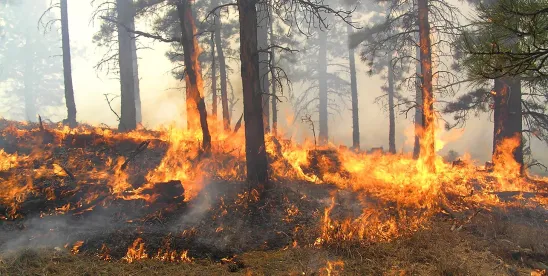As a Los Angeles-based firm, we are deeply saddened by the devastation caused by the recent wildfires. We remain committed to supporting our clients and friends during this time and are hopeful that the general tax information outlined below may be helpful as those affected by the wildfires begin to consider plans to recover and rebuild.
On January 10, the IRS announced tax relief for individuals and businesses affected by the Los Angeles County wildfires, following the disaster declaration issued by FEMA. The governor announced relief related to California state taxes on January 11, and on January 14, 2025, it was announced that eligible property owners may qualify for property tax relief in Los Angeles County.
Extensions
The IRS and the California Franchise Tax Board (FTB) extended certain filing and payment deadlines falling on or after January 7, 2025 and before October 15, 2025, to October 15, 2025. For individuals and businesses with an IRS address of record located in Los Angeles County, the IRS will automatically provide relief. If a taxpayer resides outside of Los Angeles County but whose records necessary to meet a deadline occurring during the postponement period are located in the affected area (for example, non-resident partners of Los Angeles partnerships), that taxpayer will need to contact the IRS disaster hotline at 866-562-5227 to request the extension.
The October 15, 2025 deadline applies to:
- Individual income tax returns and payments normally due on April 15, 2025 (federal and state).
- 2024 contributions to IRAs and HSAs (and note, additional relief might be available in the form of special disaster distributions or hardship withdrawals; each plan or IRA has specific rules).
- Quarterly payroll and excise tax returns normally due on Jan. 31, April 30, and July 31, 2025.
- Calendar-year partnership and S corporation returns normally due on March 17, 2025 (federal) and PTE tax returns and elective tax payments normally due on March 15 and June 15, 2025 (state).
- Calendar-year corporation and fiduciary returns and payments normally due on April 15, 2025 (federal and state).
- Calendar-year tax-exempt organization returns normally due on May 15, 2025 (federal and state).
- A 2024 estimated tax payment normally due on Jan. 15, 2025, and estimated tax payments normally due on April 15, June 16, and Sept. 15, 2025 (federal and state).
- Certain other time-sensitive actions, including those related to Section 1031 exchanges, as discussed below.
Note that while an extension will prevent penalties as long as taxes are paid before the October 15 deadline, the extension does not prevent interest from accruing.
The IRS and the FTB also have provided affected taxpayers until Oct. 15, 2025, to perform other time-sensitive actions described in Treas. Reg. § 301.7508A-1(c)(1) and Rev. Proc. 2018-58, including specific relief pertaining to like-kind exchanges of property (including for taxpayers who are not otherwise “affected taxpayers” under the general relief rule).
Finally, the California Department of Tax and Fee Administration (CDTFA) has granted a three-month extension on the ability to file and pay taxes or fees for various CDTFA-administered programs, including sales and use tax returns for certain taxpayers, as well as various programs related to natural resources.
Casualty Losses
Affected taxpayers will be able to claim fire-related casualty losses on their federal income tax return on either their current or prior year tax returns (i.e., a taxpayer can elect to treat the loss as offsetting its 2024 income). A casualty loss is typically limited to a tax basis, rather than fair market value, but taxpayers should carefully consider whether a casualty loss deduction makes sense for them, because it cannot be claimed if tax basis is expected to be reimbursed (e.g., through insurance or litigation proceeds). If any portion of a casualty loss deduction is reimbursed, a portion of the reimbursement will be treated as ordinary income (and not eligible for deferral).
For California state tax purposes, taxpayers can only take a casualty loss to the extent it exceeds 10% of adjusted gross income. It is unclear at this time whether a federal law signed at the end of last year will apply to these wildfires, eliminating this 10% adjusted gross income requirement for federal tax purposes.
For property tax purposes, taxpayers may be entitled to both a deferral of payment and monetary relief for property taxes already paid and future property taxes as a result of property being damaged or destroyed. The relevant forms are available on the Los Angeles County website under “Misfortune or Calamity,” linked here for convenience.
Insurance Proceeds and Casualty Gain
Certain insurance proceeds resulting from federally declared disasters (such as certain proceeds for temporary living expenses or personal property, in either case, resulting from a loss of principal residence) can be received tax-free. However, other insurance proceeds may be treated as sales proceeds, resulting first in a reduction in basis of one’s property and beyond that, taxable gain (a “casualty gain”). For the loss of a principal residence, to the extent a taxpayer has casualty gain, up to $250,000 for single taxpayers and $500,000 for married taxpayers can be excluded from income.
Tax-Deferred Exchanges
Taxpayers, including businesses, may be able to defer gain under Section 1031, Section 1033 or possibly both.
Section 1033 allows tax deferral when a taxpayer’s property has been involuntarily converted, including in circumstances involving a federally declared disaster. An election under Section 1033 can allow indefinite deferral on casualty gain. However, the rules relating to involuntary conversions, including the deadlines, can be complex. For example, for a principal residence, the casualty gain must be reinvested within 4 years of the first year in which casualty gain was realized. In many circumstances, a taxpayer can receive insurance proceeds and sell underlying land and use all of the proceeds as part of a Section 1033 exchange.
In certain circumstances, taxpayers may determine utilizing Section 1031 makes more sense, which allows for similar tax deferral. Generally speaking, Section 1031 is more limited as it is only available to taxpayers that hold their real property for use in a trade or business or for investment, and proceeds received as part of a Section 1031 exchange must be reinvested within six months.
Property Tax Relief
For any taxpayer that has had their property destroyed or damaged and decides to rebuild, the rebuilding will not cause an additional “new construction” assessment provided that the property after reconstruction is “substantially equivalent” to the property prior to the damage or destruction. Any reconstruction of real property, or portion thereof, that is not substantially equivalent to the damaged or destroyed property, shall be deemed new construction and only that portion that exceeds substantially equivalent reconstruction shall be newly assessed.
Similarly, any taxpayer that has had their property substantially damaged or destroyed by the fire may transfer their base-year value to a comparable property within the same county, which comparable new property must be acquired or newly constructed within five years after the disaster. Replacement property is comparable to the property damaged or destroyed if it is similar in size, utility, and function to the property which it replaces. As long as the replacement property is not worth more than 120 percent of the value of the damaged or destroyed property (immediately prior to the disaster), the base value will transfer with no adjustments. If the replacement property costs more than 120 percent of the value of the damaged or destroyed property, then the excess will be added to the base-year value.
For taxpayers who had their principal residence damaged or destroyed by the wildfire, they may transfer their base-year value to a replacement dwelling anywhere in California that is purchased or newly constructed by that person as their principal residence within two years of the sale of the original property.




 />i
/>i

